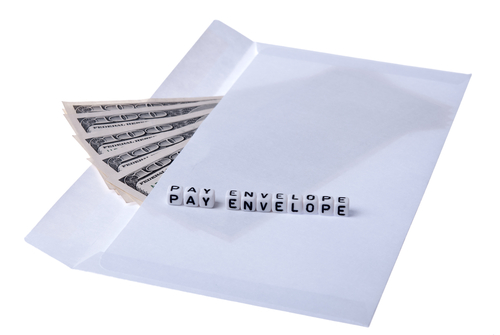While most employers pay their employees fair wages, including overtime pay, for the time that they work, this is not the case for every employer. Some employers try to avoid compensating employees for overtime hours. However, failing to pay the employees the full amount they are owed is theft in the eyes of the law.
Your employer is required to pay you at your regular rate for non-overtime hours and at a higher rate for overtime hours. If your employer refuses to pay you wages that you believe you are entitled to, you may be able to file a lawsuit to collect the unpaid wages and possibly additional damages you incurred as a result.
A Bohemia unpaid wages and overtime lawyer from Gacovino, Lake & Associates, P.C. may be able to help you hold your employer accountable for wages they owe you. We can evaluate the details of your situation and determine whether you have a valid case against your employer. We can also help you explore what options you have for recovering unpaid wages and other damages.
For a free, no-obligation case review, contact Gacovino, Lake & Associates, P.C. today at (631) 600-0000.
Common Types of Wage Theft
There are many ways that an employer can unfairly and illegally underpay their workers. This is also known as wage theft. Some of the common forms of wage theft include:
Not Paying the Minimum Wage
The federal minimum wage, according to the U.S. Department of Labor (DOL), is $7.25 per hour. If you are being paid less than that, then your employer may owe you for unpaid wages.
Unpaid Overtime Compensation
According to the DOL, unless employees are classified as exempt according to the Fair Labor Standards Act (FLSA), they may be entitled to overtime pay for the time they work over 40 hours. The FLSA says that employees must be paid one-and-one-half times their regular rate of pay.
Off-the-Clock Hours
If you are a non-exempt employee, your employee may be required to pay you from the time you get to work until the time you go home, including the time that it takes you to clean up at the end of your shift. If you are non-exempt and working off-the-clock through your lunch break or after hours, you may be entitled to unpaid wages or overtime compensation.
There may be other times that your boss is required to pay you, such as qualified travel time or on-call time.
Unpaid Leave
If you were promised paid leave in company documents, but your employer does not grant it to you, this could be considered wage theft.
Misclassifying the Employee
If your employer classified you as an exempt employee when you should have been classified as non-exempt under the FLSA, you may be entitled to unpaid wages and overtime compensation.
These are not the only forms of wage theft that exist. If you believe that your employer did not pay you fully for the time you worked, a Bohemia unpaid wages and overtime lawyer from Gacovino, Lake & Associates, P.C. may be able to help you.
For a free consultation on your case with a member of our team, call us today at (631) 600-0000.
Understanding When an Employee is Exempt
Employees are eighter categorized as exempt or non-exempt. If an employee is exempt, the employer is not required to compensate them for overtime. They can still choose to do so, but it is at their own discretion. To be considered exempt, you must be paid a salary and, according to the DOL, perform executive, administrative, or professional duties.
To qualify as exempt as an executive, your primary duties must be managing an enterprise and directing the work of two or more full-time employees. To qualify as exempt as an administrative staff member, your primary duties must be office work related to operations. To qualify for a professional exemption, you must do work that requires advanced knowledge or perform work that requires intellection decision making and judgment.
There may be other circumstances that qualify a worker as exempt. A Bohemia unpaid wages and overtime lawyer from Gacovino, Lake & Associates, P.C. can help you understand whether you are an exempt or non-exempt employee and whether you have a valid claim against your employer for unpaid wages or overtime pay.
How the Statute of Limitations Could Impact Your Claim
Per 29 USC § 255, the federal government typically gives an employee two years to take action and pursue compensation for unpaid wages and overtime pay. However, in the state of New York, you may have significantly longer. According to LAB § 198, you may have six years to take action to recover wages, benefits, and damages in New York.
How the Team at Gacovino, Lake & Associates, P.C. Can Help
Employees may not realize how much money their employer actually owes them. They may know they are entitled to compensation, but may only pursue a small amount of the total wages owed in their claim. They may be asking for less than they could recover if they understood how to calculate the full amount.
A Bohemia unpaid wages and overtime lawyer from Gacovino, Lake & Associates, P.C. may be able to represent you. Our lawyers are familiar with the state and federal employment laws. They also understand how to calculate the unpaid wages you are owed, so you are not potentially leaving money on the table.
At Gacovino, Lake & Associates, P.C., we understand the common techniques employers use to try to get out of paying their employees fairly. We can take the burden of legal action off of you and pursue the money that you have earned by working for the employer.
For a free review of your case, contact Gacovino, Lake & Associates, P.C. today at (631) 600-0000.
